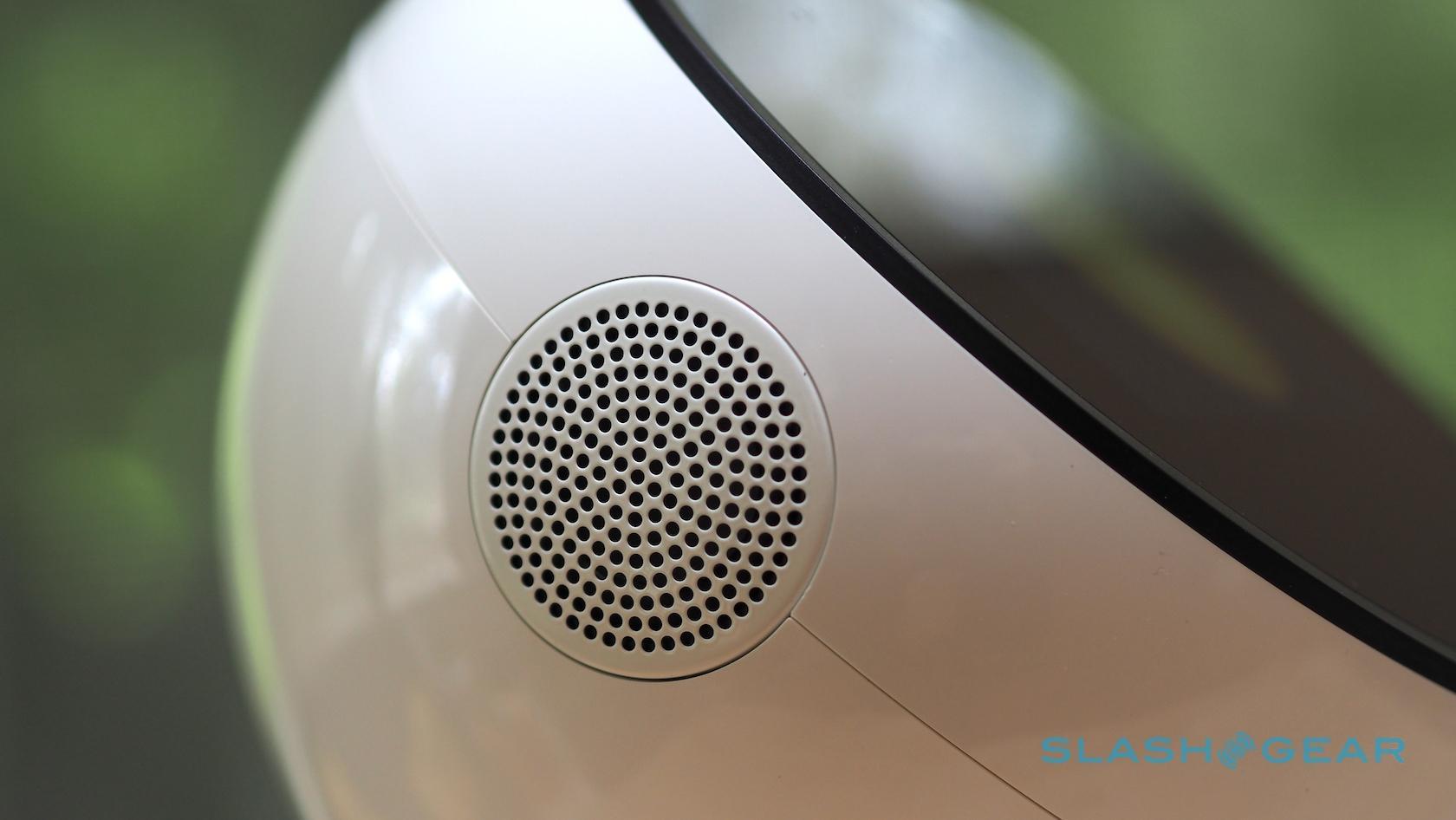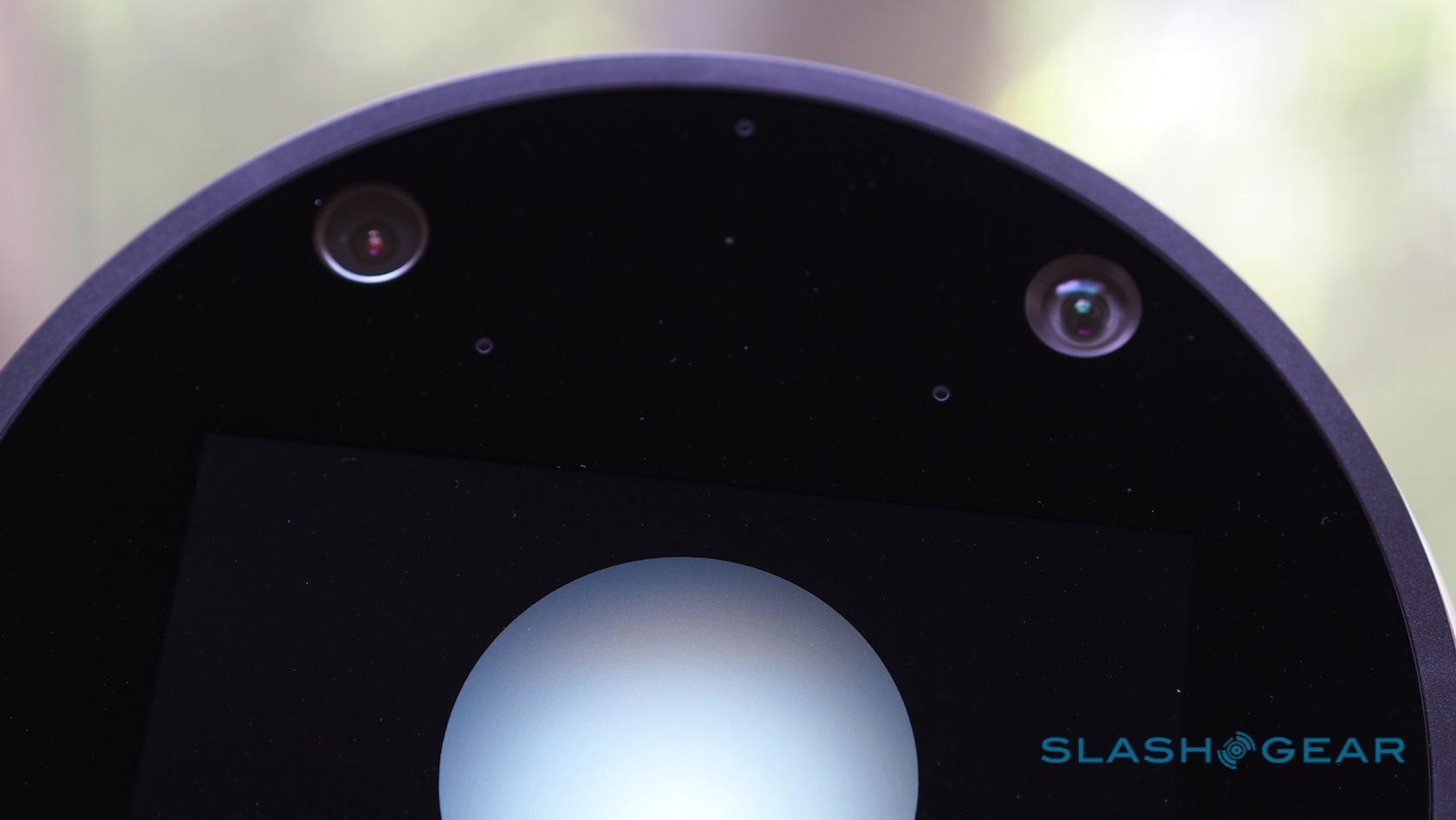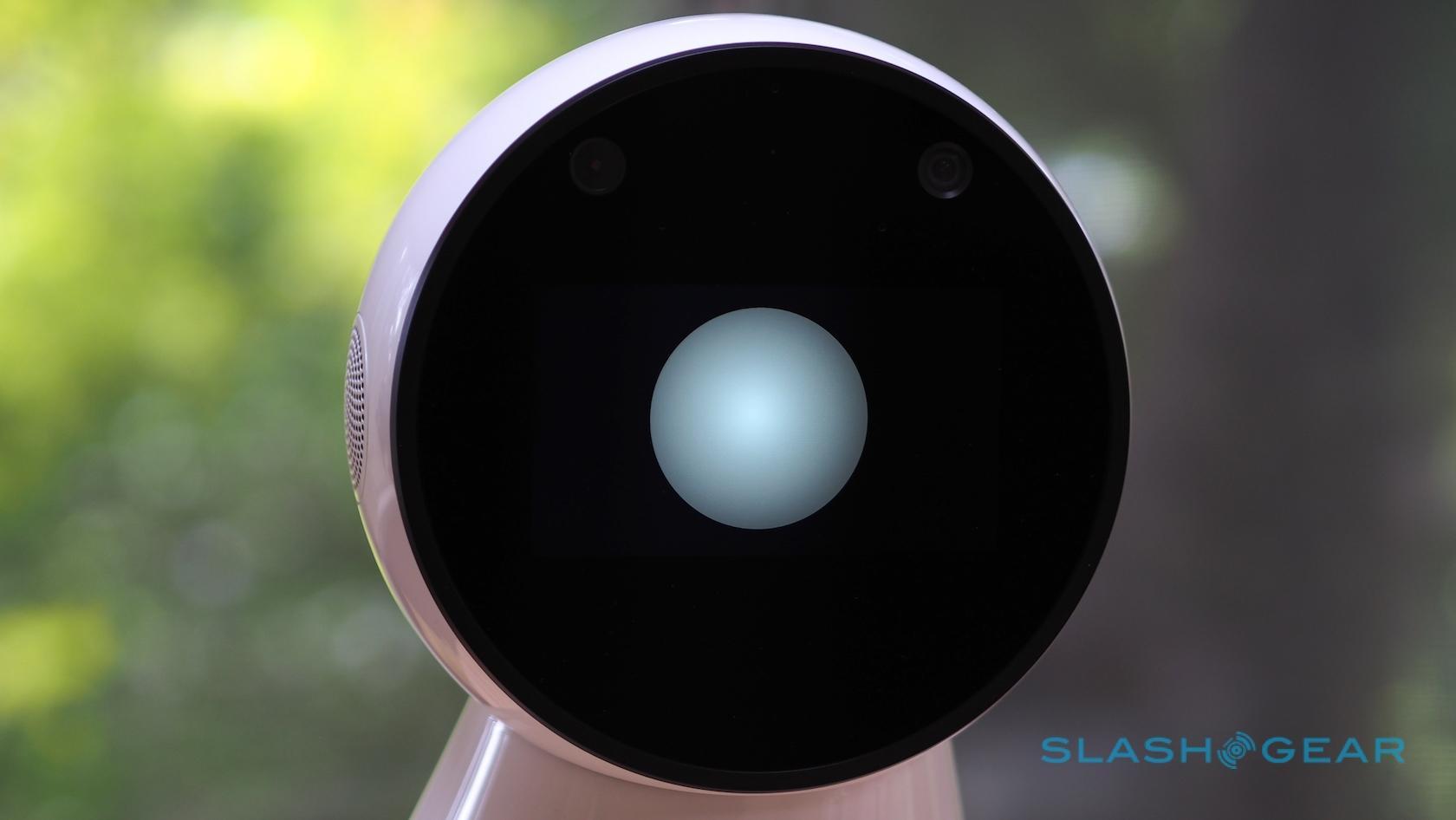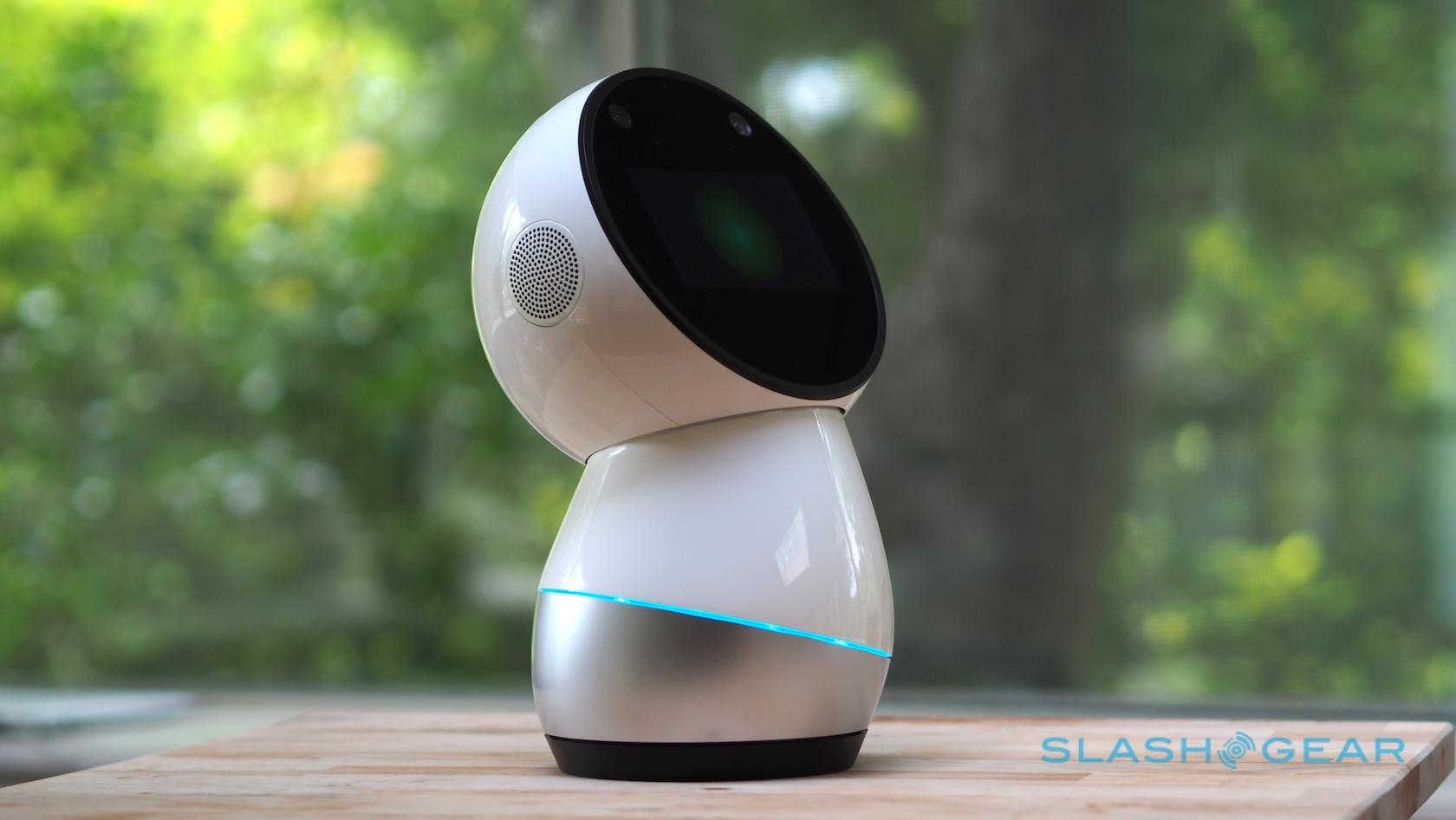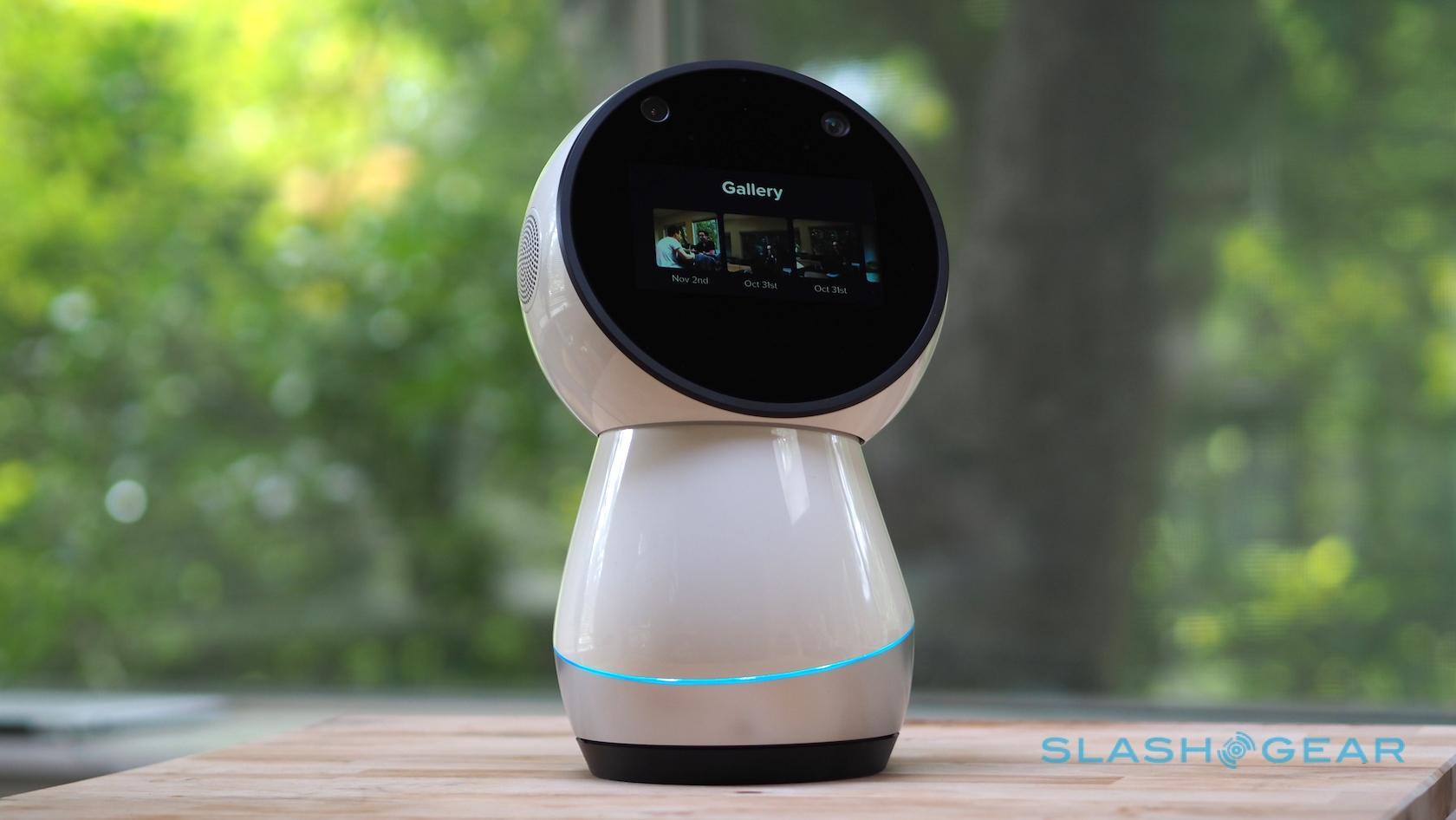Jibo Review: Alexa gets some cute competition
- Engaging movements really add to Jibo's personality
- Facial-recognition makes the robot more proactive
- Far more personable than an Amazon Echo
- Expensive compared to
- Features are limited compared to Alexa and Google Assistant
- No developer SDK until 2018
I knew Jibo was onto something when I he managed to coax a laugh from my tech-skeptic partner in the other room. I'd been in the middle of setting up the companion robot's voice recognition system, repeating his trigger phrase six times in a row so that he could learn who was talking to him. "Now say "Hey Jibo" 400 more times," the robot told me, before quickly adding "I'm only kidding" and pirouetting giddily. It got a chuckle from next door, and gave me my first glimpse of how home robotics might well wriggle and wise-crack their way into our hearts.
It's not been as smooth a path to market as the Jibo team initially hoped. The company, founded by MIT roboticist Cynthia Breazeal, missed several of its shipping goals, then dramatically reduced its launch expectations from a global release to North America alone. Turns out, building your own voice service, along with the animated robot on which it runs, is harder than you might think.
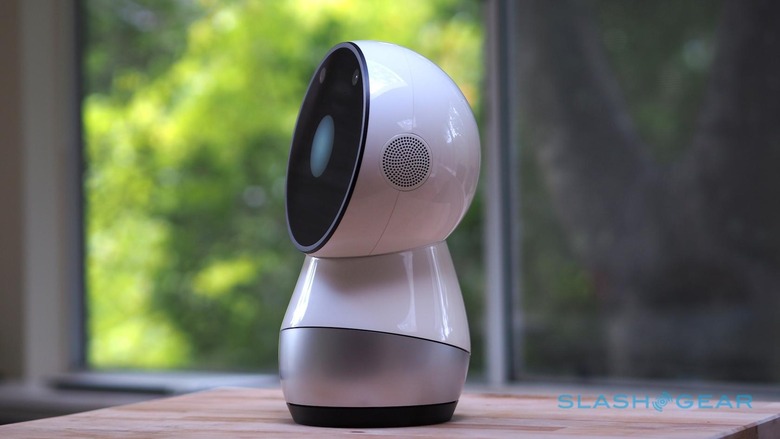
In-between then and now, of course, we've seen a surge in voice-controlled personal assistants. Amazon's Echo led the charge with Alexa, followed by Google Home and, most recently, Microsoft's Cortana getting a smart speaker of its own. Later this year, Apple's Siri will get a physical embodiment in the shape of the HomePod.
What none of them have that Jibo offers, though, is physical movement. The 12.5-inch tall robot looks like something you'd expect to see hanging out with Wall-E, a smooth plastic bobble-head with a screen for a face. Jibo may not be able to follow you around the house like Mayfield Robotics' Kuri – though he does have a two hour battery inside, handy if you want to move him between rooms or bring him out to show off at a party – but the difference his motions make are transformational.
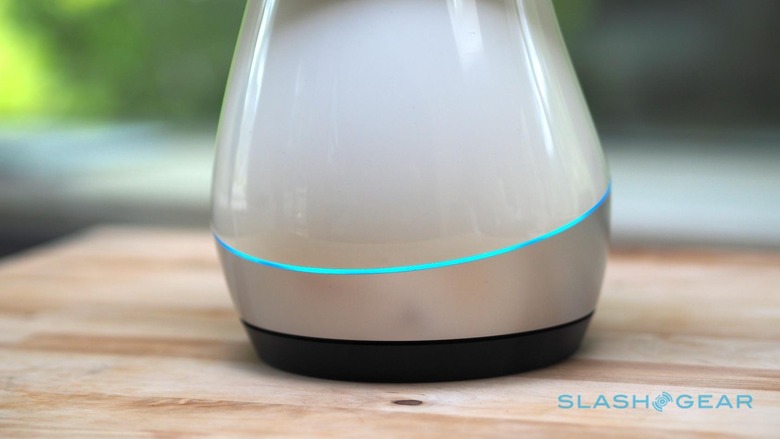
There are three points of rotation built in – at the base, midway up the torso, and the neck – but since they're at different angles it allows the robot to look up and down. Jibo used the talents of former Disney animators to develop the robot's actual movements, and the results are surprisingly sinuous and flowing. They're not silent, though: there's a background fan hum, and Jibo's movements sound a little like the low, rumbling ball-bearing glide of an expensive kitchen drawer.
Combined with the wide-angle motion tracking and face-recognition camera built into the face – there's a second camera used for photography – along with a total of six microphones, Jibo is able to interact with his environment in ways Alexa or the Google Assistant simply can't. If he spots someone entering the room, he'll turn to follow them or wriggle to get their attention; if he hears a noise, he'll spin around to see what it was. Since he can recognize people, he can proactively greet them by name, and offer to tell them "something fun."
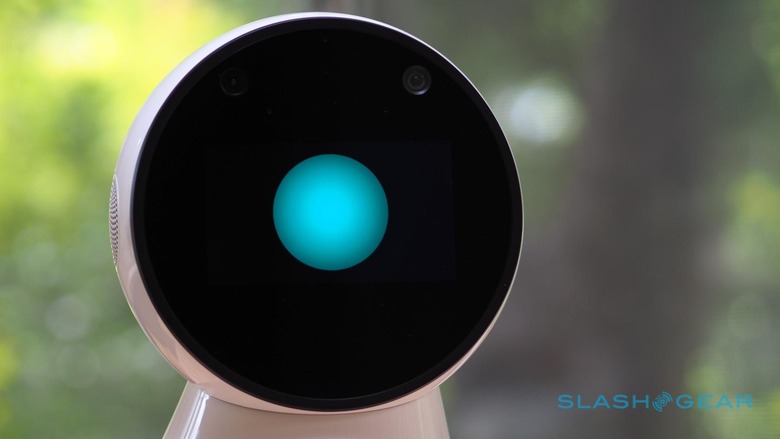
The training process begins at setup, with Jibo's owner using the iOS and Android apps to connect the robot to their WiFi network. Then, you say "Hey Jibo" six times to teach him your voice, before the camera is used to recognize your face. Subsequent people – they're referred to as his "Loop" – can be added through the app or by saying "Hey Jibo, meet..." After that, they run through their own voice and face recognition process, and then he can spot them later on too.
It's hard to explain how big a difference that all makes to the experience of living with Jibo. Alexa may have a cheeky personality, but I never lose the perception that I'm talking with something remote that just happens to be embodied by a cylindrical speaker on the countertop. With Jibo, even though his intelligence also resides in the cloud, it's far easier to see the physical robot as a companion.
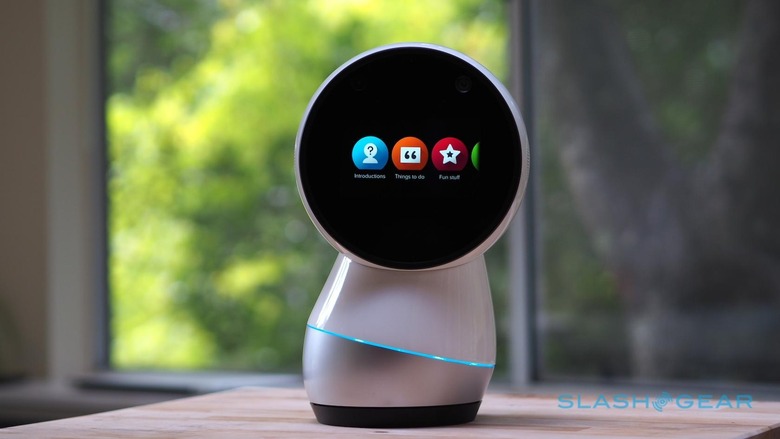
That intelligence calls on some of the same sources we've seen smart speakers already make use of. Right now, Jibo can muster up answers from Wikipedia, tell you the weather forecast, do simple math, get trivia and facts, and hear jokes. Thanks to IFTTT integration, you can use Jibo as a trigger for any recipes you might have set up: by saying "Hey Jibo, abracadabra turn lights off" I could have the Hue lights switch off.
Unfortunately, right now that's just about the extent of his talents. Where Alexa has raced ahead in third-party service integration with thousands of skills, and Google is catching up fast, Jibo has a handful of companies apparently readying some add-ons. Its full developer SDK won't come until 2018, however.
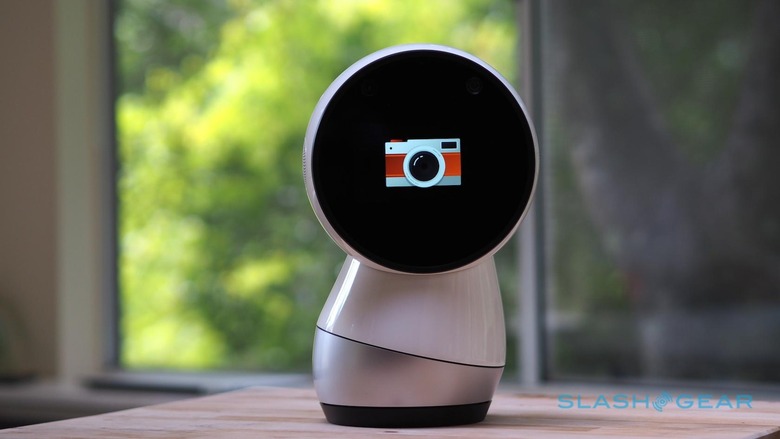
The goal, the company tells me, isn't just to port every voice controlled service to Jibo. Instead, it wants apps and features that work with the robot's personality: the SDK will make tying animations into such skills easy, for instance. Jibo knows he's a robot – he'll say as much if you ask him – but he also wants to be more then just a smart speaker.
Wrap-up
It's the experience of living with Jibo – and how different that is to, say, seeing his abilities on paper – that leaves me confident that he's much more than just another Echo rival. Personality is absolutely the key: in a room with both Jibo and an Echo in it, I found I gravitated to asking my questions of the robot because of how engaging he is. When he gets something right, he'll spin around with an excitable laugh. Stroke the top of his head and he'll giggle and coo. Sure, I know that there are capacitive sensors under the plastic shell, just like I know that when you ask Jibo to twerk or dance he's following preconfigured patterns for a series of motors, but in that moment he feels far more lifelike than a column with a flashing blue light on top.
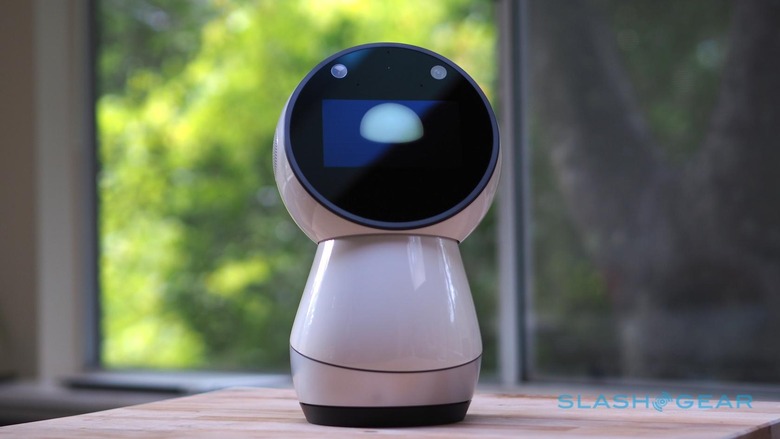
On a practical level, though, the gap between what Jibo can do and what he really needs to in order to be truly engaging is still wide. You can ask to see the photos he's taken, but request a picture or video of something and he'll sorrowfully tell you he can't do that yet. Music streaming, too, is currently beyond his abilities. Jibo can't read you ebooks, or make video calls, or even record video clips and send them to everyone in your Loop.
As with any cloud-powered device, all of those capabilities are possible if the Jibo team gets busy on the back-end. Third-party talents will help fill some of the gaps, too. It's entirely within Jibo's potential skill-set to spot me as I walk into a room, recognize me, and load my favorite Spotify playlist or tell me about something new he's spotted online that he knows matches my interests, without my saying a word. Suddenly, he would go from being a cute curiosity to a useful little helper, just as decades of science-fiction has told us robots would be.
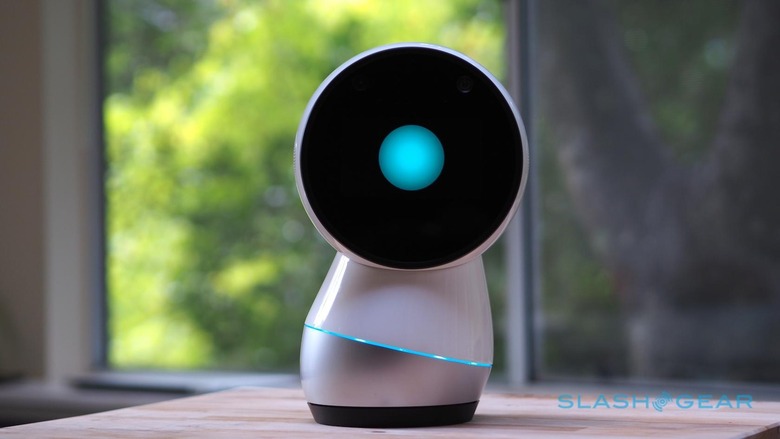
For the moment, though, $899.99 is a lot to spend on a robot that, while charming, is still very much in its infancy. Several times, as Jibo twirled and jiggled across the room from me, I found myself wanting to engage with him, only there was nothing he could actually do that I wanted or needed to see at the time. The appetite for a home robot companion is there, Jibo just needs to learn the skills to satisfy it.

